- Home
- Lauren Blakely
My Charming Rival Page 10
My Charming Rival Read online
Page 10
At seven thirty on the dot, an egg-shaped, mint-green electric car pulled up, the driver parking by the curb. A red-haired guy with ruddy cheeks and a small, pert nose got out and walked towards me. He carried a silver coffee thermos in one hand and a tablet computer in a faux black bamboo case in the other. He wore a pink button-down shirt, crisp and untucked, but a size too large. I was willing to bet he’d borrowed it from an older brother. He had on shades. His were small and mirrored. He whipped them off as if he practiced the move in the mirror each morning, then flashed a whitened and brightened grin at me. He placed his tablet on the table.
“Jess Leighton, I’m Keats Wharton,” he said, and extended a hand.
“Pleasure to meet you. Do you want to get a coffee?”
Keats tapped the side of his silver thermos. “I went on a caffeine-free diet a year ago and have literally never had more energy. I have my chia seeds mixed with unsweetened cherry juice right here.”
I stifled a gag. I might be all about healthy eating, but there is just something patently wrong about the juxtaposition of unsweetened next to cherry juice. He settled into the empty chair, flicked open the tablet case, and plucked out a business card.
“A Thousand Words is a good name. What’s your story?”
“I graduated from UCLA last fall. I started my agency a few months ago and we’ve done well so far. Let me show you some of our placements.”
He tapped on the browser and showed me an image that I’d seen run yesterday in In The Stars. It was a shot of the bleached-blond Jenner Davies serving meals at a soup kitchen, part of the actor’s efforts to rehabilitate his image after the whacking he’d bestowed on the front desk clerk at the hotel during his Planet Patrol tirade.
“One of my photogs landed this shot last week of Jenner.”
“Nice,” I said because it wasn’t a bad photo. It was probably planned—I suspected Jenner’s publicist had arranged and ensured that photographers were on hand to capture the young, embattled actor’s suddenly selfless ways. “And necessary,” I added.
“Totally,” Keats said, then scrolled to a few other shots—images of TV stars posed on red carpets and unposed on Melrose as they shopped. When Keats stopped his show-and-tell, he took a long swallow of his chia-seed-festooned beverage and gave a satisfied smack of the lips. “But as for the job for you, I came to you because of the shot you took on Monday on Venice Beach. Of a certain starlet, her cherished dog, and her supposed new beau.”
“Supposed? Miles is a ‘supposed’ for Riley?”
“Or simply one in an assembly line of beaus. I have it on good authority that the little Miss Riley Belle is not only dillying with Miles Sterling, but she’s also dallying with the director of the film.”
I didn’t act shocked. I didn’t let on that I was surprised. But I was. Riley didn’t seem the type to get a little something going on with a director. She was talented, successful, and, well, smart. A smart girl wouldn’t get involved with a notorious ladies’ man who was also twice her age. Of course, being twice Riley’s age only meant that Avery Brock, the English-born director of The Weekenders, was thirty-six.
The real issue, though, was that Avery Brock was taken. Married to a leggy Brazilian supermodel, he’d reportedly strayed from her before. There had never been photographic evidence of his past dalliances, but it was Hollywood’s worst-kept secret that he liked his ladies of the spring chicken variety and had been rumored to have romped with a few other young stars. Would his wife take him back after yet another fling? He had a boyish face and the sort of moppish hair and sweet brown eyes that could make you want to forgive him if he gave you his best puppy dog look and a self-deprecating line.
The technique certainly worked on the entertainment press—I’d seen a video of him a few weeks ago being interviewed on a British entertainment show about The Weekenders. The interviewer asked why the script had languished so long in rewrites, and he’d simply remarked, “Eh, it’s probably my own fault, right? I had to get in there and muck it all up. But I’m doing my best to un-muck my own mess.”
Then he flashed his innocent grin, and the interviewer chuckled, won over by Avery’s wit at his own expense.
“Their affair literally just started up, and they’re meeting tonight after a script read-through,” Keats said.
I wanted to add that they weren’t just meeting after a script read-through—Riley was likely meeting her director after a read-through that came after a final dress fitting for her sister’s wedding. But I kept my own secrets. Keats didn’t need to know I was chasing a wedding shot of Riley’s equally in-demand sister. “Do you know what time for the tryst?”
He shifted his right hand back and forth like a seesaw. “Anytime between nine and eleven. I can call you if I’m able to get more details. But for now, I know they’re planning to meet over in this warehouse-y area in Burbank, not far from a UPS facility and some car detailing shops. It’s very quiet, and there’s a cul-de-sac at the end of the road, with a little trail that runs behind the businesses.”
“Sounds sketchy,” I said. All things being equal, I’d have preferred a nice, well-lit daytime location on the beach.
“It’s all businesses. Busy during the day. Quiet at night. It’s where you’d never expect a randy director to take the next ingenue he’s trying to bang.”
Keats gave me more details, and I wrote them down. Then he paused and gave me a hard, expectant look. “Do you accept?”
“You have the money?”
He re-opened his tablet case, reached into an inside pocket, and pulled out a white envelope. I peeked inside, eyeing several crisp bills. I tried not to suck in a deep breath of enjoyment, but boy were they beauties. And this little one goes to human anatomy. And this little one is for biochemistry.
I’d wanted to be a doctor for as long as I’d ever wanted to be anything, and even the hospital dramas on TV with their multiple impalements and catastrophic accidents couldn’t turn me off medicine. Medicine and me were a perfect match—logical but intuitive, too.
“So you’ll get the shots?”
“Of course,” I said, and dropped the envelope into my backpack, as if I were regularly accustomed to clients handing over such big and delicious unmarked bills.
“Will you email me the shots tonight?”
“No. I’ll meet you tomorrow and give them to you in person. I’m sure you’re an upstanding guy and all, but cash talks better than people.”
He pointed his index finger at me and snapped. “Don’t you know it. Girl after my own heart.” He leaned back in his chair, a pleased look on his face that he’d initiated a new business transaction. Keats had more than Monopoly money to throw around, and if I were him I’d be satisfied, too.
“I can meet you at twelve thirty tomorrow to give you the pictures. Somewhere on the promenade?” I asked, because I had my volunteer visit slated with Jennifer at the nearby hospital tomorrow afternoon.
“Perfect. Rosanna’s Hideout?”
“I’ll be there,” I said, then thanked him and said goodbye.
When I was safely out of view, I swung my backpack around front, dropped my hand inside, and clasped the bills all the way home on my scooter as I marinated on the Riley and Avery connection. Maybe they were simply meeting about her production company. Maybe she was going to tap him to direct a project, rather than to direct his lips onto hers. A part of me hoped that was the case. I liked Riley, I didn’t want her to be the type to canoodle with a married man. But if she was going to, I’d gladly take the money from a shot.
When I reached my apartment, Anaka was still sleeping. I gathered eggs from the fridge and sprayed a light dusting of olive oil on the skillet. As I cooked just the whites, I spied a pile of mail on the nearby table, including information from my bank about obtaining low-interest loans for medical school. I scoffed silently. I was allergic to loans and determined to find the cash to pay for school, just as I’d done for the first four years.
My parents had plan
ned to help pay for college, but they’d been blindsided. One day when I was a sophomore in high school, my dad came home from work, his jaw tensed, his eyes deadened. He held on tight to the doorframe that led into the kitchen. My mom was making dinner, and I was doing homework. “My company is being investigated for fraud,” he said in a monotone. He was a vice president at his firm.
The next several weeks spiraled into a dizzying domino-like rush of hushed conversations, tense moments, and the kind of pathetic hope you harbor that the worst—well, financially the worst—isn’t about to happen. My dad had always been an upbeat, happy man. At the time all this went down, he was anything but, and his moods rubbed off on my mom. They snapped at me for every little thing. Bed not made. Yelled at. Dishes not cleaned. Scolded. They were both tightly wound, knobs turned well past high for many months. His firm and its pension fund cratered, taking every employee’s financial future in the rubble of the wrecking ball. The only good part was that my dad stayed out of the line of fire because he’d never been the one skimming off shareholders. Leaving with his reputation intact was all he could hope for as he looked for a new job.
Eventually, their moods unsoured when it set in that there was literally nothing to be done about the lost savings, except to start over. I resolved then to keep far away from loans. I vowed to stay in charge of my own fate, from school to money to what I ate to how I exercised.
But how could I take charge of my own future? Photography fit since I’d always had a steady hand and a good eye, and had been taking pictures of anything from caterpillars to cakes to friends at the pool since I was in kindergarten. Sunsets were a favorite subject of mine, too, and a peach-violet sky hanging over the Pacific adorned my bedroom wall. As I’d grown older and had fallen in love with the world of celebrity around me, I captured photos of stars I saw on the streets, or the beach, or in stores.
They were everywhere in LA, and so paparazzohood was a natural career choice for a gal in need of a new nest egg. At first blush, my life appeared complicated, from balancing classes, chasing photos, planning for medical school, and managing my volunteer work. But in reality, my world was simple. I had one motivation—pay for school to become a doctor, and photos were my means.
Everyone had a motivation. Any decent screenwriting book will teach you that.
After I ate breakfast, I headed to the science building, considering what Riley’s motivation with Avery might be. Was it a career move to land a role? Was it love? Or was it simply to scratch a naughty itch?
Later, when I finished my advanced bio quiz, I returned to that topic. If everyone had one, what was William’s in taking pictures? Was he simply trying to pay for school? Or was there more? And were those kisses in the movie theater part of his goals, or were those kisses obstacles in the way of reaching his goal?
Whether he was the good guy or the bad guy was still up in the air.
15
William
* * *
As I walked into the kitchen buttoning my shirt, John peered at my feet from over the open fridge door. “Something you want to tell me, Will?”
John took a swig from my milk carton, guzzling the beverage.
“Yes, as a matter of fact, I do have something to tell you. And that is this—there is a store called the grocery store. You go there. You buy milk. You put it in your fridge. Across the hall. In your apartment,” I said, pointing to the door.
John shrugged in a way that said he had no plans to do that. “By the way, you’re out of milk, and so am I,” he said. “That’s why I stopped by. Plus, your door was unlocked. Dude, how many times do I have to tell you—you’re living in LA now. Lock your door,” he said as he thrust the carton into the shelf on the door. “Americans like myself are freeloaders.”
I shook my head. “No kidding, and by the way, do not put the milk carton back in the fridge, especially since it’s empty.”
He yanked open the fridge door, plucked the milk-free carton from its spot, and slapped it on the counter. As the door fell shut, he eyed my bare feet again. “You moonlighting as a drag queen? C’mon, admit it. You were out last night with the whole full face on, right?” He mimed drawing a circle around his face. “Mascara. Eyeliner. Lipstick, right?”
“Yes. I was. I had my feather boa and even my fake eyelashes. Please don’t borrow them without asking like you did the last time,” I said as I finished buttoning the shirt, then began knotting a tie.
“Okay, seriously. Why are your toenails red, why don’t you lock your door, and why in the hell are you wearing a tie?”
“One, my toenails are red because a hot girl dared me to do it. Two, sometimes I forget when I come home from a morning swim that the guy who lives across the hall from me has no sense of boundaries—my bad—and three, I have a job interview in thirty minutes.”
John crooked out his elbow and stared at a nonexistent watch on his wrist, then at me. “You better get going. There is nowhere in this city you can get to in thirty minutes.”
“It’s one mile away at an agency for court translators.”
“Like I said, there is nowhere in this city you can get to in thirty minutes.”
“I’m on my way. I just need socks and shoes.”
“No, go barefoot. That’s how all the translators dress here,” he said as he headed to the door. He stopped to glance back approvingly at my feet as I tugged on socks. “By the way, excellent answer to number one. Hot girl dares rock.”
“That they do, man. That they do.”
John was right about traffic, so I did that thing that Los Angelenos rarely do. I put one foot in front of the other and I walked. Along the way, I called James and gave him what little details I’d been able to glean so far.
“Decent start,” he said begrudgingly after my report. “Now I need more. Oh, and I have a few more hours to throw your way on the other project we’ve been working on. Things are gearing up on that one, and now we just need to get the names in place,” he said, and then shared more details.
“Great. I’m on it,” I said as I stopped at a light, waiting for traffic. “Maybe I can come on board full-time when the school year is up,” I suggested, and hoped to hell he didn’t hear the twinge of desperation I felt.
He laughed. “We’ll see, kid. You need to get me more info for my client from the field before I can even think about that request.”
“I will,” I said, feeling like the dog chasing the rabbit at the races. I wasn’t sure if I’d ever catch up. I had little tempting teasers of opportunities all around me. But none were paying off yet.
“Oh, one more thing,” James said before hanging up.
“Yes?”
“For the little project I just told you about. You’re going to need a date. Think you can convince anyone to go with you?”
I gritted my teeth. James had such a fine way with words.
Then he explained why, and I instantly knew there was only one person I wanted to be my date. How to convince her would take some finesse, though, especially since she’d taken off with barely a goodbye last night.
The no-nonsense woman with her brown hair pulled tightly in a bun peered at me over gold-rimmed glasses. Her office was a testament to bare-bones decorating. There was a pencil holder on her wooden desk, a black-framed photo of her degree on the brown plywood walls, and a beige carpet. She tapped my résumé once more. “Impressive coursework. Impressive language skills. Excellent fluency. There’s only one problem.”
“Yes?”
“You don’t have your degree.”
“But I will in two months,” I said, doing my best to keep the worry out of my tone. We were seated in her office at the employment agency that handled court translators.
“You should return then, Mr. Harrigan,” she said, and slid my résumé across the desk back to me.
“Thank you very much,” I said, flashing her my best I appreciate your time smile.
As I hit the sidewalk outside her office, I crumpled up the résumé and
tossed it into the nearest trash can. In two months, I’d be back in England unless I found an employer who’d sponsor me to stay.
I ran a hand through my hair, frustration rooting deeper in my chest.
I grabbed my phone and looked at the time. I had a class in an hour. Jess had a class this morning, too—advanced bio, she’d told me. Sighing heavily, I gave in once again. I searched for the location of the advanced biology class at the University of Los Angeles, and hoped to hell she wouldn’t see me tailing her.
Especially since I’d need to ask her on a date for this weekend.
16
Jess
* * *
I could understand why detectives might have big butts. Stakeouts involved a lot of sitting. A lot of waiting. A lot of time to expand one’s rear. That’s why I stood instead, leaning back against the brick facade next to the Top-It-Yourself Yogurt Gallery across from the pair of potential dress boutiques.
I’d been here for more than an hour, and had already finished my chemistry work, as well as several more pages in my French translations. My camera strap was looped over my arm, and the camera itself was tucked neatly underneath my light jacket. The warm weather didn’t call for a jacket, but I needed it to hide the obviousness of a camera with a lens on it. I had yet to spot the bride or any of her bridesmaids. All I’d seen was a large orange tomcat sunbathing in the window of a bauble-and-bead costume jewelry shop across the tree-lined street. I was going to have to call it a day soon, and figure the tip my mom had picked up had been a flimsy one, through no fault of her own.
After waiting twenty more minutes, I decided the bridesmaid final fitting was clearly a bust. I started to pack up, tucking away my coursework and checking the zippers on my backpack. I walked down the block toward my scooter, when my finely-tuned celebrity radar sensed a shift in the air. There was a sudden hushed energy near me, a low hum as shoppers and other passersby started to turn their heads, to tap their companions, to start the sentence Is that…

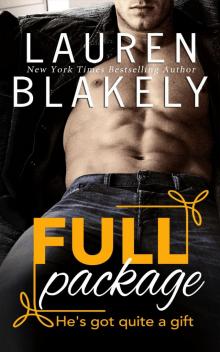 Full Package
Full Package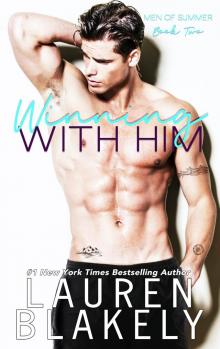 Winning With Him
Winning With Him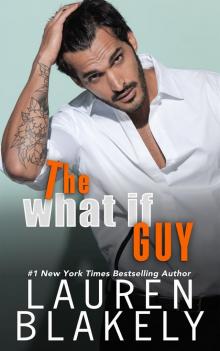 The What If Guy
The What If Guy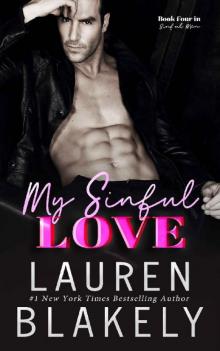 My Sinful Love (Sinful Men Book 4)
My Sinful Love (Sinful Men Book 4)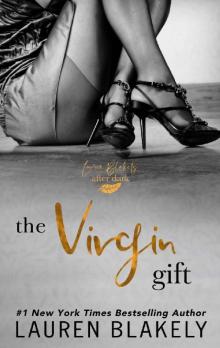 The Virgin Gift
The Virgin Gift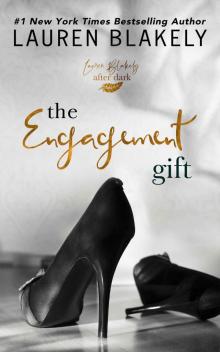 The Engagement Gift
The Engagement Gift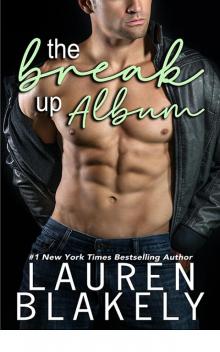 The Break-Up Album
The Break-Up Album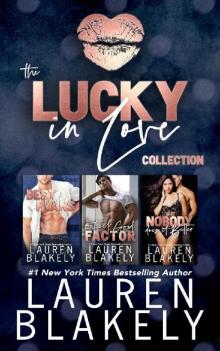 The Lucky in Love Collection
The Lucky in Love Collection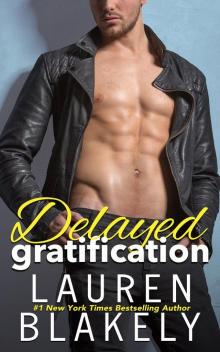 Delayed Gratification
Delayed Gratification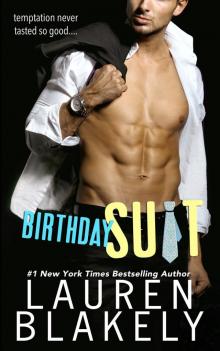 Birthday Suit
Birthday Suit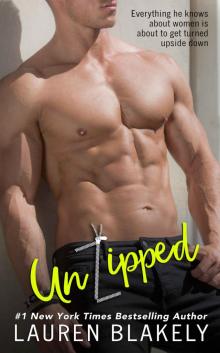 Unzipped
Unzipped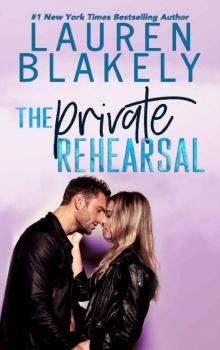 The Private Rehearsal (Caught Up In Love: The Swoony New Reboot of the Contemporary Romance Series Book 4)
The Private Rehearsal (Caught Up In Love: The Swoony New Reboot of the Contemporary Romance Series Book 4)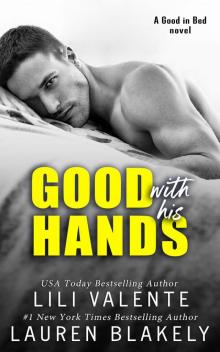 Good With His Hands
Good With His Hands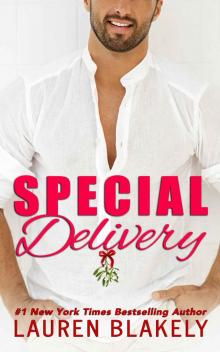 Special Delivery (Always Satisfied Book 5)
Special Delivery (Always Satisfied Book 5)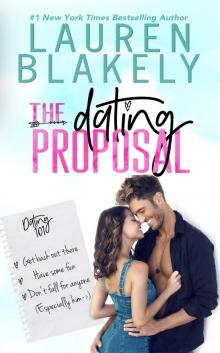 The Dating Proposal
The Dating Proposal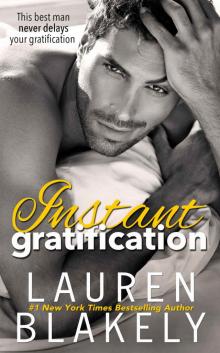 Instant Gratification (Always Satisfied Book 2)
Instant Gratification (Always Satisfied Book 2)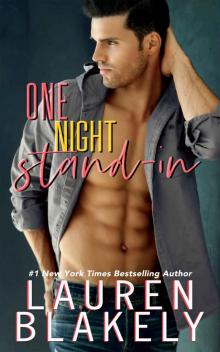 One Night Stand-In (Boyfriend Material Book 3)
One Night Stand-In (Boyfriend Material Book 3)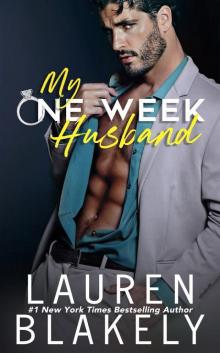 My One Week Husband
My One Week Husband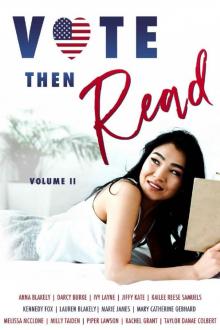 Vote Then Read: Volume II
Vote Then Read: Volume II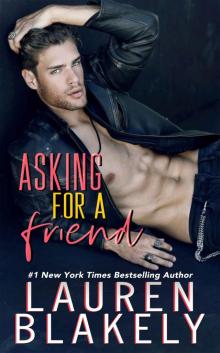 Asking For a Friend (Boyfriend Material Book 1)
Asking For a Friend (Boyfriend Material Book 1)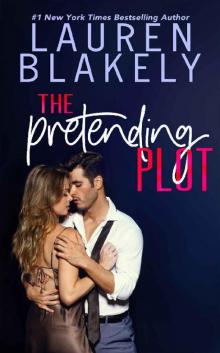 The Pretending Plot (Caught Up In Love: The Swoony New Reboot of the Contemporary Romance Series Book 1)
The Pretending Plot (Caught Up In Love: The Swoony New Reboot of the Contemporary Romance Series Book 1)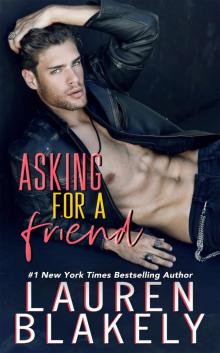 Asking For a Friend
Asking For a Friend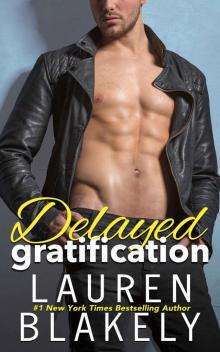 Delayed Gratification: (Always Satisfied Book 2.5)
Delayed Gratification: (Always Satisfied Book 2.5)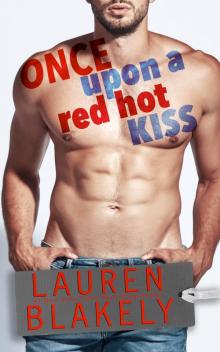 Once Upon A Red Hot Kiss
Once Upon A Red Hot Kiss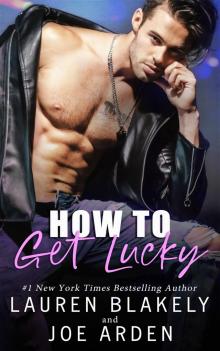 How to Get Lucky
How to Get Lucky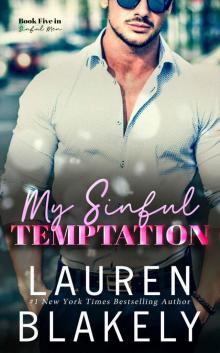 My Sinful Temptation (Sinful Men Book 5)
My Sinful Temptation (Sinful Men Book 5)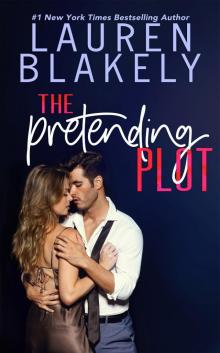 The Pretending Plot
The Pretending Plot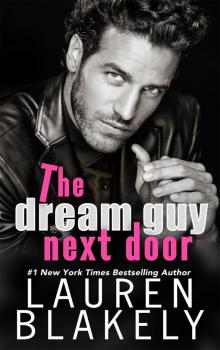 The Dream Guy Next Door: A Guys Who Got Away Novel
The Dream Guy Next Door: A Guys Who Got Away Novel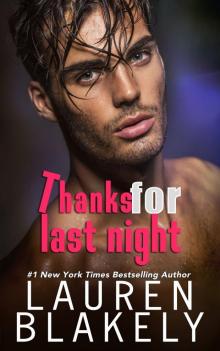 Thanks For Last Night: A Guys Who Got Away Novel
Thanks For Last Night: A Guys Who Got Away Novel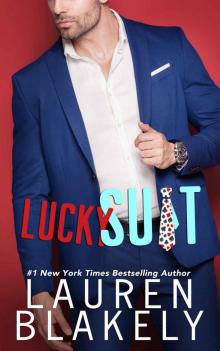 Lucky Suit (Sexy Suits Book 1)
Lucky Suit (Sexy Suits Book 1)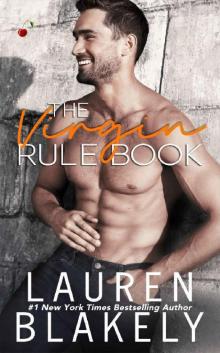 The Virgin Rule Book (Rules of Love 1)
The Virgin Rule Book (Rules of Love 1)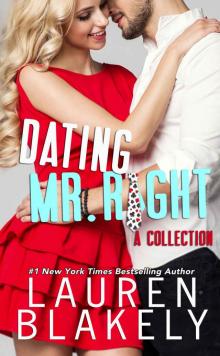 Dating Mr. Right: A Collection: Four Standalone Romantic Comedies
Dating Mr. Right: A Collection: Four Standalone Romantic Comedies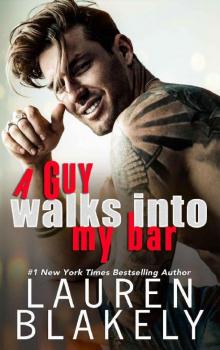 A Guy Walks Into My Bar
A Guy Walks Into My Bar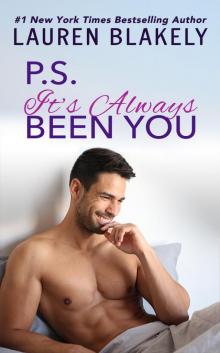 PS It's Always Been You
PS It's Always Been You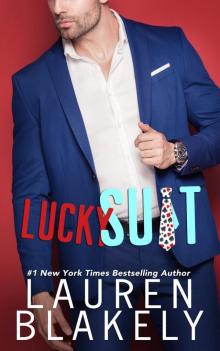 Lucky Suit
Lucky Suit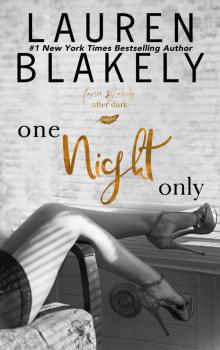 One Night Only: An After Dark Standalone in The Extravagant Series
One Night Only: An After Dark Standalone in The Extravagant Series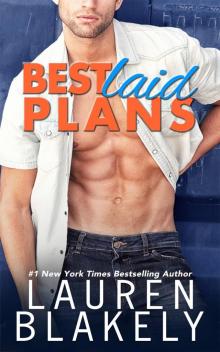 Best Laid Plans
Best Laid Plans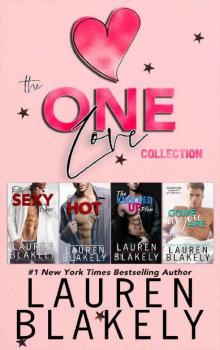 The One Love Collection
The One Love Collection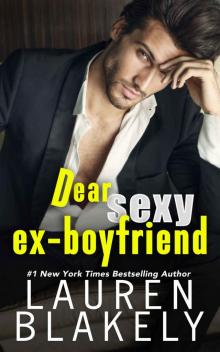 Dear Sexy Ex-Boyfriend (The Guys Who Got Away Book 1)
Dear Sexy Ex-Boyfriend (The Guys Who Got Away Book 1)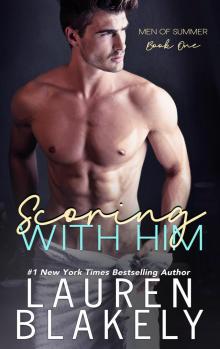 Scoring With Him
Scoring With Him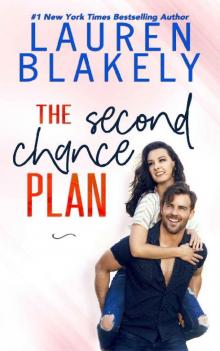 The Second Chance Plan (Caught Up In Love: The Swoony New Reboot of the Contemporary Romance Series Book 3)
The Second Chance Plan (Caught Up In Love: The Swoony New Reboot of the Contemporary Romance Series Book 3)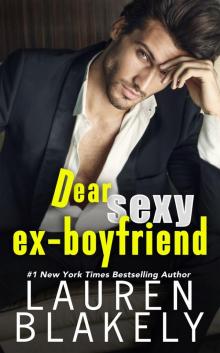 Dear Sexy Ex-Boyfriend
Dear Sexy Ex-Boyfriend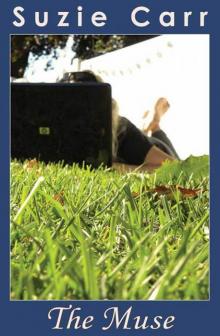 The Muse
The Muse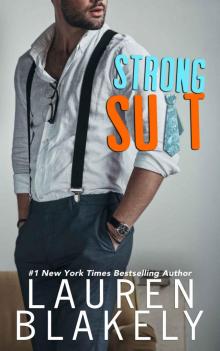 Strong Suit
Strong Suit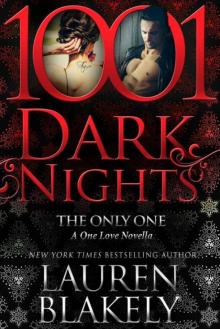 The Only One
The Only One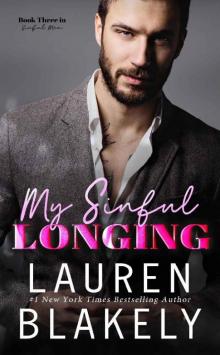 My Sinful Longing (Sinful Men Book 3)
My Sinful Longing (Sinful Men Book 3)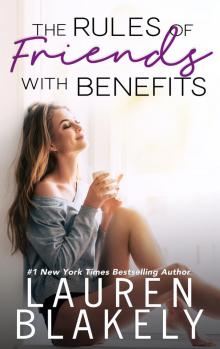 The Rules of Friends with Benefits
The Rules of Friends with Benefits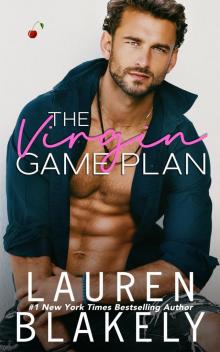 The Virgin Game Plan
The Virgin Game Plan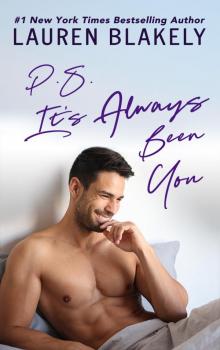 P.S. It’s Always Been You: A Second Chance Romance
P.S. It’s Always Been You: A Second Chance Romance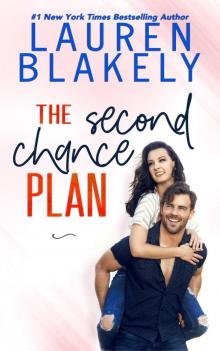 The Second Chance Plan
The Second Chance Plan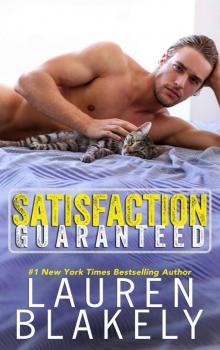 Satisfaction Guaranteed: A Standalone Romance (Always Satisfied Book 1)
Satisfaction Guaranteed: A Standalone Romance (Always Satisfied Book 1)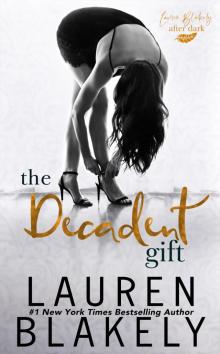 The Decadent Gift
The Decadent Gift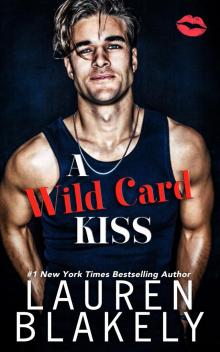 A Wild Card Kiss
A Wild Card Kiss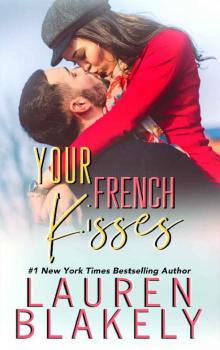 Your French Kisses (Boyfriend Material Book 4)
Your French Kisses (Boyfriend Material Book 4)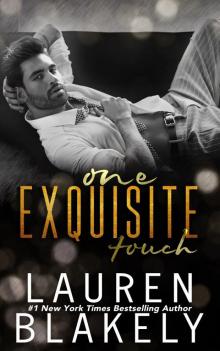 One Exquisite Touch: Book One in The Extravagant Series
One Exquisite Touch: Book One in The Extravagant Series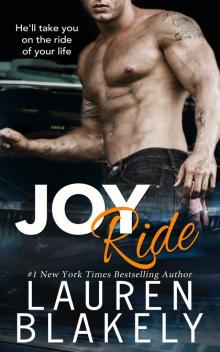 Joy Ride
Joy Ride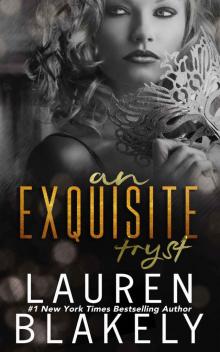 An Extravagant Tryst: A Prologue (The Extravagant)
An Extravagant Tryst: A Prologue (The Extravagant)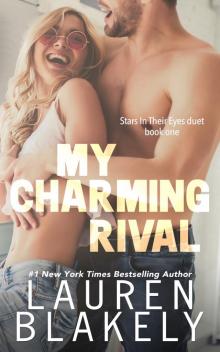 My Charming Rival
My Charming Rival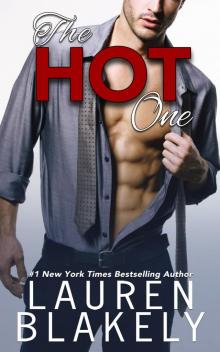 The Hot One
The Hot One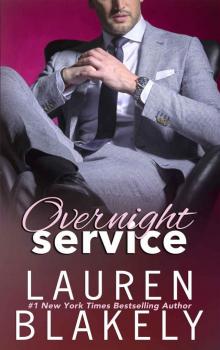 Overnight Service (Always Satisfied Book 4)
Overnight Service (Always Satisfied Book 4)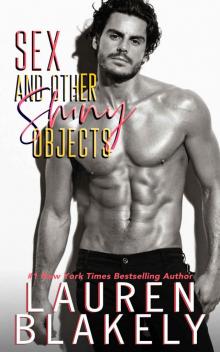 Sex and Other Shiny Objects (Boyfriend Material Book 2)
Sex and Other Shiny Objects (Boyfriend Material Book 2)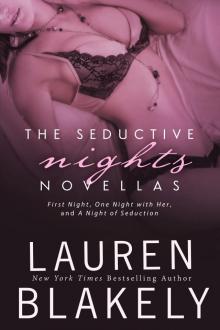 The Seductive Nights Novellas
The Seductive Nights Novellas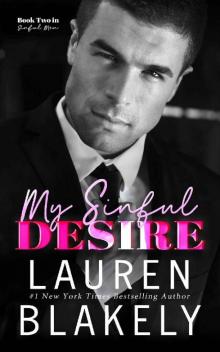 My Sinful Desire (Sinful Men Book 2)
My Sinful Desire (Sinful Men Book 2)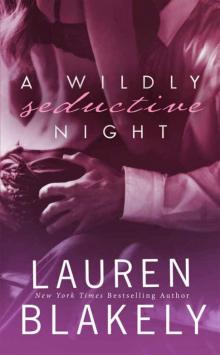 A Wildly Seductive Night: (Seductive Nights: Julia & Clay Book 3.5)
A Wildly Seductive Night: (Seductive Nights: Julia & Clay Book 3.5)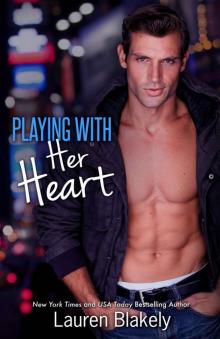 Playing With Her Heart
Playing With Her Heart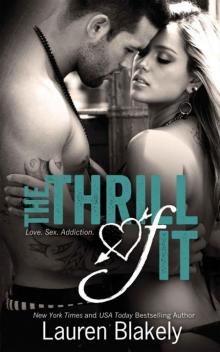 The Thrill of It
The Thrill of It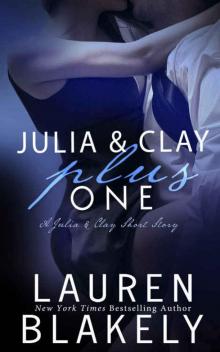 Julia and Clay Plus One
Julia and Clay Plus One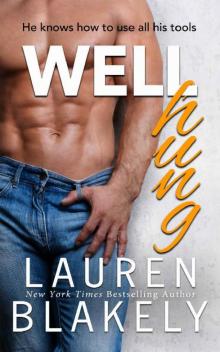 Well Hung
Well Hung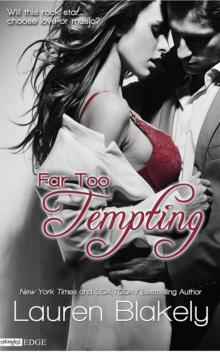 Far Too Tempting
Far Too Tempting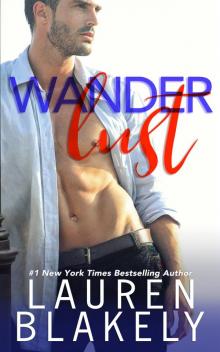 Wanderlust
Wanderlust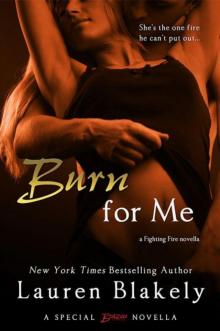 Burn for Me
Burn for Me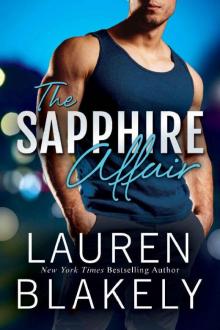 The Sapphire Affair (A Jewel Novel Book 1)
The Sapphire Affair (A Jewel Novel Book 1)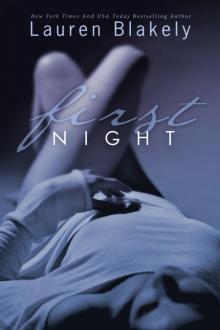 First Night
First Night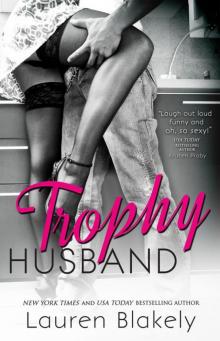 Trophy Husband
Trophy Husband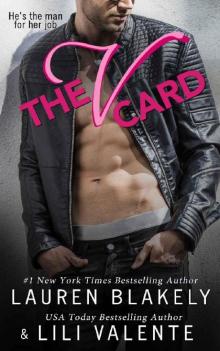 The V Card
The V Card Out of Bounds
Out of Bounds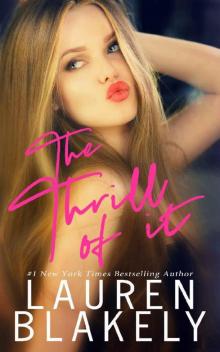 The Thrill of It (No Regrets Book 2)
The Thrill of It (No Regrets Book 2)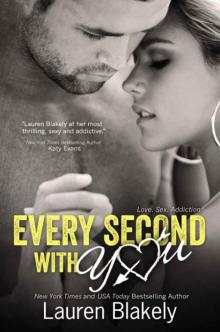 Every Second With You
Every Second With You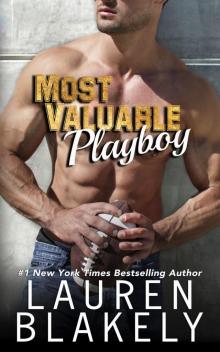 Most Valuable Playboy
Most Valuable Playboy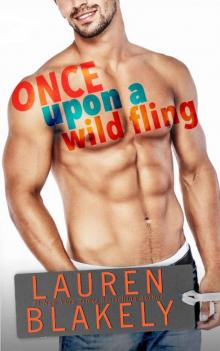 Once Upon A Wild Fling
Once Upon A Wild Fling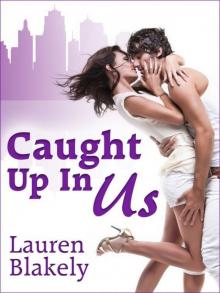 Caught Up In Us
Caught Up In Us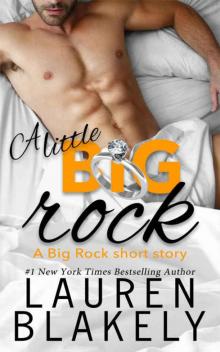 A Little Big Rock (Big Rock #0.5)
A Little Big Rock (Big Rock #0.5)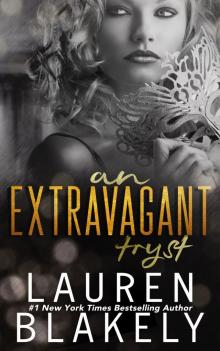 An Extravagant Tryst
An Extravagant Tryst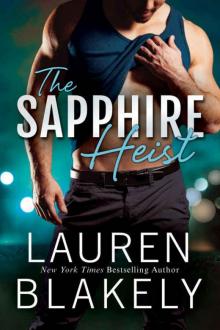 The Sapphire Heist (A Jewel Novel Book 2)
The Sapphire Heist (A Jewel Novel Book 2)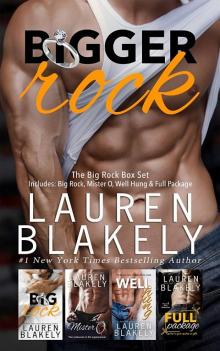 Bigger Rock
Bigger Rock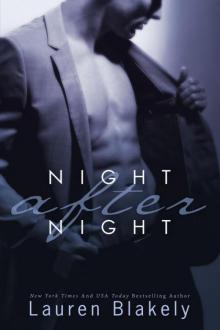 Night After Night
Night After Night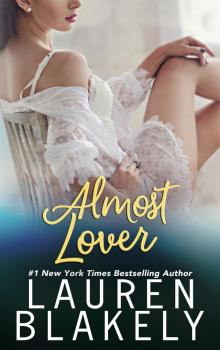 Almost Lover
Almost Lover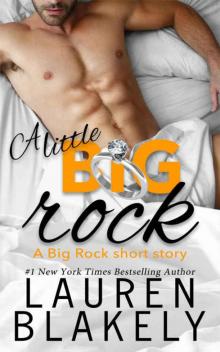 A Little Big Rock
A Little Big Rock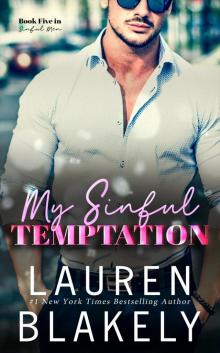 My Sinful Temptation
My Sinful Temptation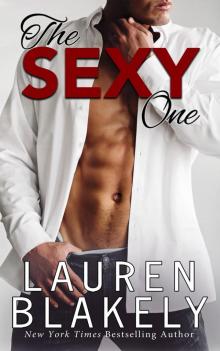 The Sexy One
The Sexy One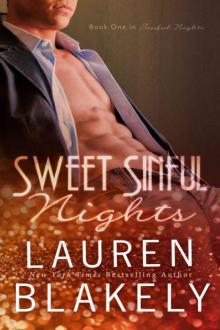 Sweet Sinful Nights
Sweet Sinful Nights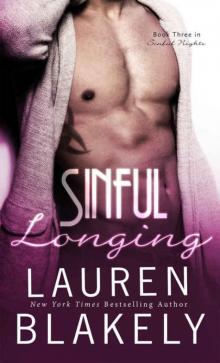 Sinful Longing
Sinful Longing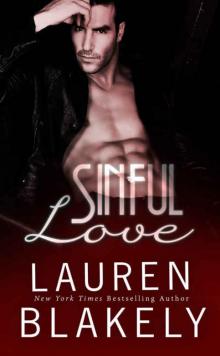 Sinful Love (Sinful Nights #4)
Sinful Love (Sinful Nights #4)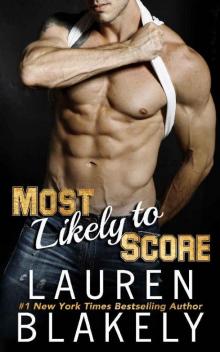 Most Likely To Score
Most Likely To Score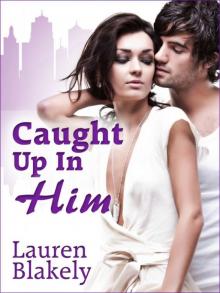 Caught Up In Him
Caught Up In Him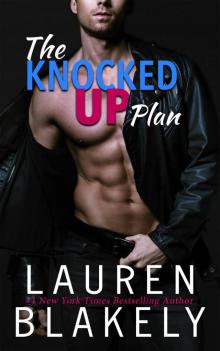 The Knocked Up Plan
The Knocked Up Plan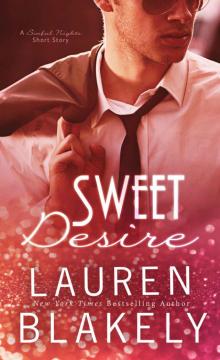 Sweet Desire: (A Sinful Nights Short Story)
Sweet Desire: (A Sinful Nights Short Story)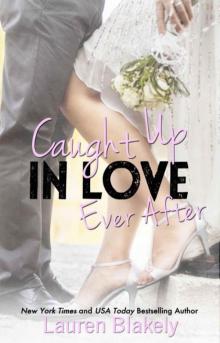 Caught Up in Love Ever After
Caught Up in Love Ever After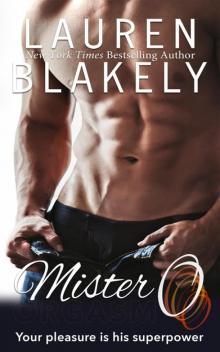 Mister O
Mister O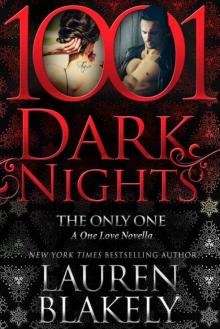 The Only One: A One Love Novella
The Only One: A One Love Novella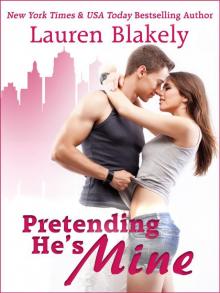 Pretending He's Mine
Pretending He's Mine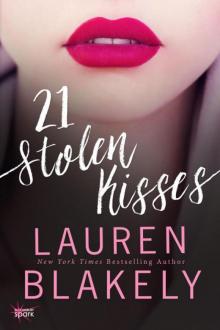 21 Stolen Kisses
21 Stolen Kisses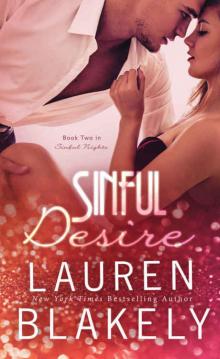 Sinful Desire
Sinful Desire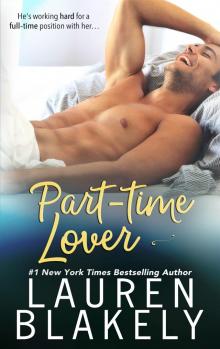 Part-Time Lover
Part-Time Lover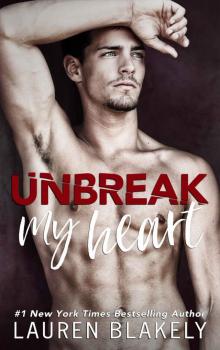 Unbreak My Heart
Unbreak My Heart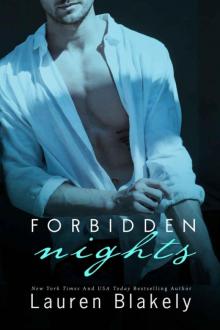 Forbidden Nights
Forbidden Nights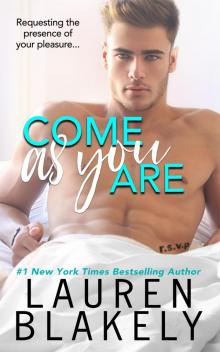 Come As You Are
Come As You Are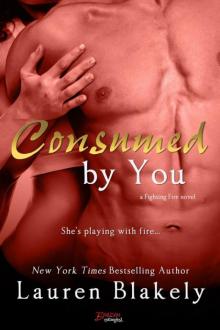 Consumed By You
Consumed By You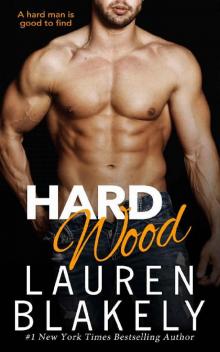 Hard Wood
Hard Wood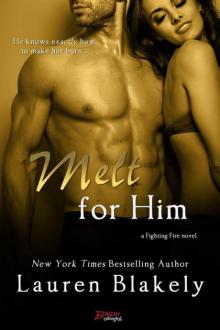 Melt For Him
Melt For Him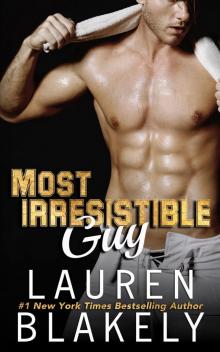 Most Irresistible Guy
Most Irresistible Guy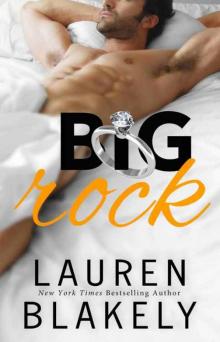 Big Rock
Big Rock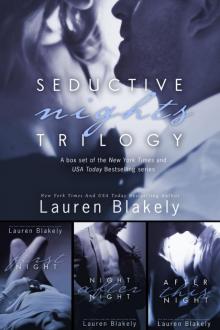 Seductive Nights Trilogy
Seductive Nights Trilogy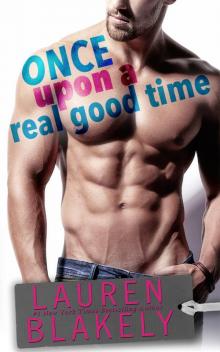 Once Upon a Real Good Time
Once Upon a Real Good Time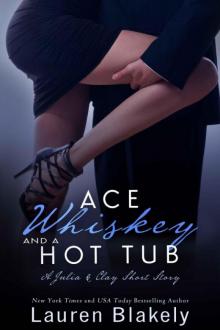 Ace, Whiskey and a Hot Tub
Ace, Whiskey and a Hot Tub Stud Finder (1001 Dark Nights)
Stud Finder (1001 Dark Nights)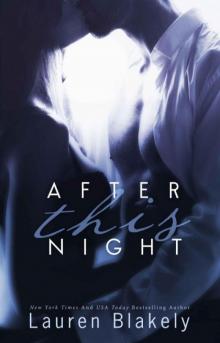 After This Night
After This Night